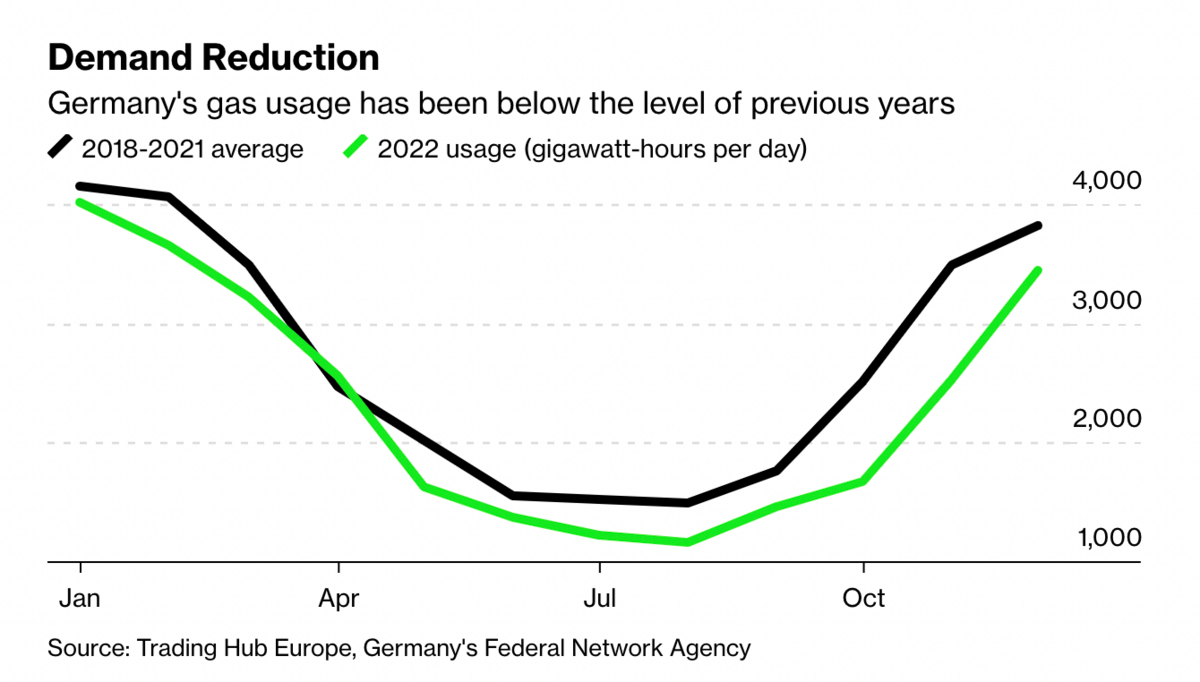Nigeria Cancels LNG Exports
Pipeline vandalism and flooding have forced Nigeria LNG Ltd. to scrap exports.
Sources told Bloomberg that the company cancelled at least two cargos slated for delivery this month from its Bonny Island facility. As many as ten shipments were cancelled, one of the sources said.
"Nigeria has been a key LNG supplier to Europe over the last year, helping to partially plug the gap created by the loss of Russian supply. Imports from the African producer made up about 7% of Europe’s LNG supply last year," reports Bloomberg.
Texas PUC Nears Market Redesign Decisions
The Texas Public Utility Commission is nearing market redesign decisions to strengthen the grid in the wake of 2021 blackouts during Winter Storm Uri.
"PUCT is considering a Performance Credit Mechanism, which has garnered criticism. The credit would be earned by generators in the Electric Reliability Council of Texas footprint, based on their availability during hours of greatest risk to the system and with an aim to incentivize more generation to be available during times of high demand," reports Utility Dive.
Texas's power market is "energy only," which means electricity generators are only paid for the actual energy (measured in megawatt-hours) they produce and sell to the grid. Generators receive no compensation for the capacity they have available to generate power, only for the energy they actually produce. This means that generators must rely on market prices to make a profit and have to bear the risk that the price of electricity will be low during times of low demand.
This contrasts with "capacity markets" where generators are paid for the capacity they have available to generate power, regardless of whether they actually produce energy or not. Capacity markets, common to other power markets, are meant to ensure that there is enough generation capacity to meet the demand for electricity even during times of high demand. The PCM that PUCT is pondering would provide the reliability of a capacity market without violating the fundamental structure of Texas's market.
The President of Stoic Energy, Doug Lewin, tweeted that the PCM is "convoluted & extremely complicated. That makes it hard to finance. Few investors, if any, will put money into long term assets based on this. But existing generators will get a windfall for old power plants."
Another problem may be that the PCM is a carrot, not a stick. Some believe that Texas needs penalties for generators that fail to provide in order to disincentivize capitalizing on scarcity pricing. Others worry that the PCM does little to encourage new capacity even if it protects existing capacity.
“I’m not really sure what problem it truly solves,” Ascend Analytics Director of Market Intelligence Brent Nelson said, as reported by Utility Dive. “You still have a scenario where you have a boom-bust potential,” Nelson continued . “When there’s a lot of resources available or mild weather you’re going to have a very low value of this incentive. When you have extreme weather or tight conditions you’re going to have a higher value. It sounds to me a lot like scarcity, just under a different name.”
Germany Wants Three New Wind Turbines A Day
German Chancellor Olaf Scholz says that Germany needs to more aggressively pursue renewable energy to dig itself out of the energy crisis.
“If we want to achieve the energy transition, we need more speed,” he said. “The goal needs to be to set up three to four large wind turbines in Germany every day.” Scholz believes renewable generation, if increased by one third, will transition Germany away from natural gas, coal, and nuclear energy.

Demand destruction has played an important role in getting Germany through the crisis thus far. The country still plans to continue shutting off its remaining nuclear plants.
Surprisingly, it seems Germany's GDP increased over the course of 2022.
Like what you're reading? Click the button below to get Grid Brief right in your inbox!
Conversation Starters
A gas pipeline connecting Lithuania and Latvia has exploded. "A gas pipeline connecting Lithuania and Latvia was hit by an explosion on Friday but there was no immediate evidence of an attack, Lithuania gas transmission operator Amber Grid said. Video published by Lithuania's public broadcaster LRT showed a fire raging at the blast site in the Panevezys county in northern Lithuania," reports Reuters. "The fire was put out, the Lithuania pipeline grid operator's chief executive said."
Tesla's stock price has dropped again. "Tesla Inc. shares slid in premarket trading after slashing prices of its vehicles sold in the US. The goal is to attract new buyers as the electric vehicle maker struggles with a significant demand problem," report Oilprice.com. "Price cuts span across much of Tesla's lineup and now allow buyers to take advantage of the $7,500 US government tax credit. It lowered the cost of the cheapest Model Y by 20%, reducing the price by as much as $21,000 to $52,990, not including fees and taxes. That enables buyers to qualify for the tax incentive by putting the vehicle under a $55,000 cap. Tesla cut 14% off the high-performance version of its Model 3, which now costs $53,990 before taxes, placing it in the price range so buyers can receive the tax benefit. Other high-end Tesla models were discounted as well."
The Biden administration plans to auction offshore wind development leases every five years. "The schedule, a longtime ask of the budding wind industry, is one of several updates the Interior Department recommended Thursday in a proposed rule that would revise the decade-old standards that govern renewable energy off the nation’s coasts," reports E&E News. “America’s clean energy transition is happening right here and now,” DOI Secretary Deb Haaland said. “Updating these regulations will facilitate the safe and efficient development of offshore wind energy resources, provide certainty to developers and help ensure a fair return to the U.S. taxpayers.”
Crom's Blessing
